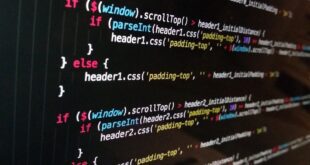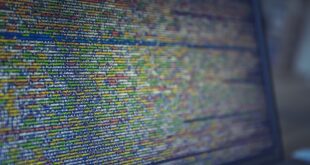10 Reasons Why Python Programming Will Rule the Future
Introduction
In recent years, Python programming is being widely accepted across various industries for its versatility, ease of use, and adaptability. It is no surprise that experts consider it the future of development, data analysis, and automation. Here are ten reasons why:
1. Popularity
Python is one of the most popular programming languages globally, with an immense active community to support and contribute to its development. According to research, it ranks third in demand, surpassing Java and becoming the second most used programming language in machine learning.
2. Easy to Learn
Python programming is easy to learn and understand, with simpler syntax that can quickly grasp concepts required for web and data-based functionalities. With fewer lines of code, the language stands distinct against traditional programming languages used in data sciences, ensuring innovation and flexibility in designing solutions.
3. Flexibility
Python is operating system dependent, allowing developers to experiment and configure it according to requirements. It can also interact with other languages such as C and C++, resulting in hybrid software development, enhanced performance and improved synergy among multiple developmental languages. Therefore, it is adaptable to range from back-end to front-end of web development.
4. Prevalence in Data Science
Python programming language ranks higher in usage in data analytics, measuring trending numerical and scientific models in multiple realms of AI, geospatial analysis, and visualisation. Many developers use python libraries such as NumPy, Pandas, and TensorFlow, which supports in-depth research and analysis to gain optimum results.
5. Demand for Machine Learning
The success rate of AI in various industries such as healthcare, finances, and retail has pushed several communities into data sciences, encouraging experts to focus largely on machine learning expertise, and build models using python programming aiding in maturing deep learning solutions.
6. Open Source Development Ecosystem
The development community in Python remains open to third-party plugins, libraries, and reusable programming models, enabling continuity and stronger productization amongst various development forums, including robotics, software development, scientific research, and testing.
7. Automation potential
Due to its popularity in web development, molecular modeling, machine learning and simulation, large corporates adapt the usability of Python programming to develop automated systems based on existing models and data to build compelling solutions rapidly.
8. Efficiency
The high-level syntax of Python makes it readable, efficient, and curtails the usage of memory whilst organizing complicated procedures in discrete modules, useful in constructing optimum software catering to high scale usage.
9. The IOT Ecosystem
Python programming applications are not only useful for data analysis and automation technologies. They also extend to the world of IoT development that requires multi functionality and easier firmware delivery, hence making Python a go-to staple for sensors and Intel GPUs applications.
10. It’s Remotely Accessible
Last, but one of the most essential aspects of the lingua franca Python programming language is its capability to run program execution remotely; this promotes a host of features such as reliability, security and most importantly to this niche, decentralized payments and engaging microservices, providing a total paradigm for the future developments.
In Conclusion
In conclusion, Python programming language concludes with ample eloquence, why it is recognized, as the versatile and essential digital luger for future projects, growth and sustainance across diverse industries globally, offering infinite possibilities for individuals wishing to push forward within this remarkable digital era—getting right in touch with the swiftly spiralling extramural implementation!
 Mind Uncharted Explore. Discover. Learn.
Mind Uncharted Explore. Discover. Learn.




